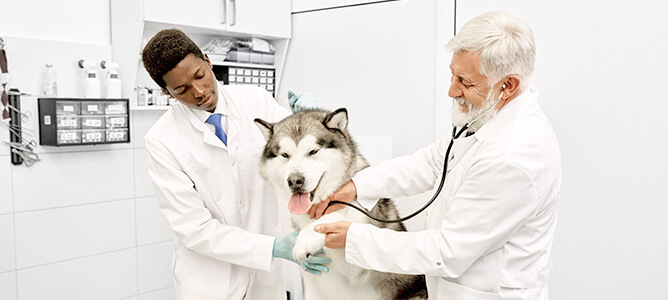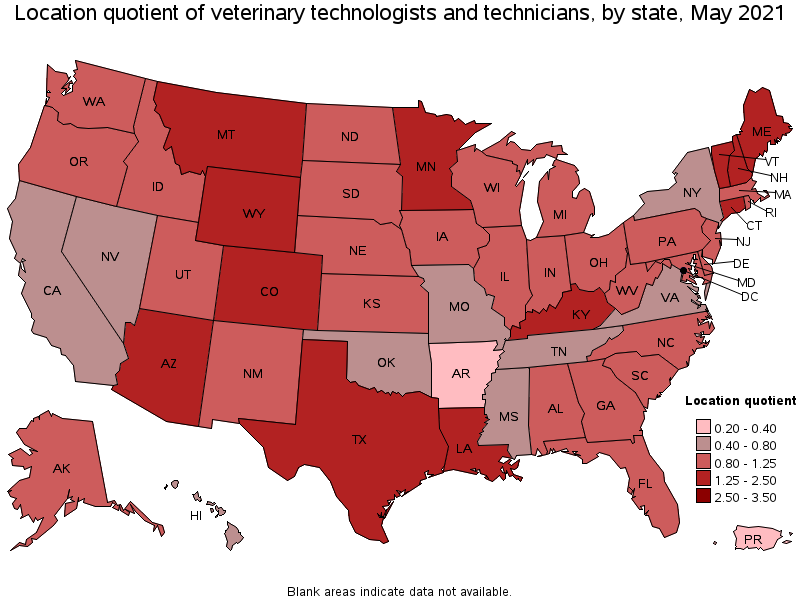
Veterinary salaries can vary considerably, depending on the type of veterinary career you choose. There are many opportunities to raise your salary. These include changing employers, completing a specialist, and pursuing an advanced degree. While some veterinarians work in private practice, others work for government-funded animal control facilities or animal welfare organizations.
Many veterinarians start out in an established veterinary practice. Assisting in clinic operations and cleaning up after animals, a paid internship is a way to earn money. This will give you the opportunity to improve your skills and expand your network.
Some veterinarians focus on a specific animal such as horses, wildlife or pets. These veterinarians could work in a clinic setting or in an animal research laboratory. They also may work for animal welfare organizations or in association with a pet supply store or adoption agency.

Location also influences the salaries of veterinarians. In areas with high demand, veterinarians may earn a higher salary. Additionally, board-certified veterinarians might earn a higher salary. Private practice veterinarians are paid a higher salary than those working for a commercial practice.
Veterinarians are medical professionals who spend their days caring for animals. They are trained medical professionals who can diagnose, treat, and perform surgeries on animals. Veterinary surgeons are among the most well-paid veterinarian health specialists. They also need to be enrolled in a 3-year residency.
Based on their expertise, location and specialization, veterinarians are paid. Generalist veterinarians make $90,200 a year. But, those with managerial experience make more. The annual salary of a partner veterinarian in a veterinary clinic is greater than that of associate veterinarians. In addition to regular wages and commissions, a partner vet's annual salary includes profit sharing.
The AVMA’s Veterinary Salary Estimator takes into consideration the specificization, experience, as well as geographic location. A veterinarian who has a specialization in animal care, animal welfare management or emergency medicine can earn a higher wage than one who does not. A veterinarian who works in a research lab must have a thorough understanding of lab animals.

There are many differences in the salaries of veterinary doctors. Utah and Montana pay the lowest salaries. California, Florida and New York have the highest state salaries. Bridgehampton and Boston are also top cities. Veterinarians can earn more than $100,000.
You might consider a career in the field of veterinarian if you love animals. Veterinarians spend a lot of time studying how to help animals. They are also passionate about their work and are committed to helping people and animals. Their salaries rise each year they are employed in this field. This makes veterinarians a stable profession that has a higher rate for job growth than other occupations.
You might consider working as a veterinarian in your new city if you're looking to relocate. Veterinarians can choose from a variety of specialties, and they may work in private practices, animal welfare organisations, or clinical settings.
FAQ
How often should I bathe my dog?
Grooming your dog will make him happy. Grooming your dog helps to maintain his coat, and it keeps him clean.
Brushing your dog twice a week is a must. Brush your dog after every meal.
Brushing your dog's fur will remove loose hair and dirt. Brushing his teeth can make him look younger.
Brushing his ears regularly will prevent ear infections.
How much should I budget for my pet?
One good rule of thumb: Budget around $200-$300 per Month.
This can vary depending on where one lives. You'd spend approximately $350 per calendar month in New York City.
In rural areas you may only have to spend around $100 per monthly.
It is important to remember to purchase quality items, such as collars, leashes, toys, etc.
Also, consider purchasing a pet crate. This will keep your pet safe when he is being transported.
Consider these things when you are considering getting a pet.
The first thing to consider is what kind of lifestyle you want for yourself and your family. Do you have kids? If so, how many? Are they currently over 50? Are there any special dietary preferences?
Are you allergic to anything? Is there anything you need to know more about your pet
After answering these questions, consider whether you are looking for an active companion or a calm lap dog, a house-trained pet, or a tank of tropical fish.
If you're considering adopting a puppy, make sure you visit a shelter or rescue group where you can meet the animals and see if you feel comfortable with them.
You should also check to see if the animal is vaccinated for rabies and other diseases.
Finally, ask the owner if he or she will take care of the animal while you go on vacation. This way, you won't have to worry about leaving your pet at home alone.
Pets are part of the family. You shouldn't adopt a pet unless it is a good fit for you!
How to make your pet happy
Pet owners often wonder what they can do to make their pets happy. Many pet owners buy treats, toys, and even clothes. This might not work for all pets, as some pets may not like certain items. Some dogs don't like sweaters.
You should ask your pet why they don't like the food you are buying. You may find out that your pet enjoys different foods than you. Maybe he doesn't like wearing shoes.
Another tip is playing games with your pet. You can play with a ball, or a frisbee. You can also throw it around in the room. You can also throw it into the air and let him chase it. This game is fun for both of you. It's relaxing and fun.
A bath is also a good idea for your pet. A bath helps to remove dead skin cells and dirt from your pet's coat. And it keeps him smelling nice.
It is vital to keep your pet happy and healthy. Don't let him eat junk food. Give him high-quality, nutritious food. He should get plenty of exercise, too. Take him for a walk, or play fetch.
Your pet will love spending time with you. In fact, pets are more comfortable being with their owners than living alone.
And finally, remember to love your pet unconditionally. Never yell at him or hit him. Be patient with him. Don't leave him unattended.
What are the symptoms of a sick dog?
There are many symptoms that indicate that your dog is sick. Some symptoms are:
-
Vomiting
-
Diarrhea
-
Lethargy
-
Fever
-
Weight loss
-
Reduced appetite
-
Coughing
-
Difficulty in breathing
-
Bleeding from your nose
-
Urine or stool contaminated with blood
These are just a handful of examples. Your vet can tell you which signs to watch for.
Statistics
- Pet insurance helps pay for your pet's medical care, with many policies covering up to 90 percent of your vet bills. (money.com)
- It's among a relatively few companies that provide policies with a full (100%) coverage option, meaning you are not responsible for any co-payment of bills. (money.com)
- A 5% affiliation discount may apply to individuals who belong to select military, law enforcement, and service animal training organizations that have a relationship with Nationwide. (usnews.com)
- For example, if your policy has a 90% reimbursement rate and you've already met your deductible, your insurer would pay you 90% of the amount you paid the vet, as long as you're still below the coverage limits of your policy. (usnews.com)
- It is estimated that the average cost per year of owning a cat or dog is about $1,000. (sspca.org)
External Links
How To
The best way to show a dog where to go to urinate is to use the easiest method
Teaching your pet how to use the toilet correctly is essential. It's also important to know how to train them if they start going outside without you. Here are some tips to help you teach your dog how to use the bathroom properly.
-
Start training early. Get started now to prevent accidents during playtime
-
Use food rewards. You'll have better luck if you reward your pet after every successful trip to the potty.
-
Your pooch's area of peeing should be kept away from treats. You might cause your pooch to associate urine smell with his favorite treat.
-
Before letting your dog out, be sure to make sure there isn’t any other animal nearby. Dogs may be influenced by the behavior of others who relieve themselves.
-
Be patient. Your puppy might take a bit longer to figure things out than a fully grown adult.
-
Let your dog sniff everything before allowing her to step into the bathroom. She will be more successful if she is able to smell the toilet before entering.
-
Do not allow your dog to go near the bathroom while you take care of business. This could cause confusion.
-
Wipe down the toilet seat and floor after you're done. These areas will be a reminder of what you should do in the future.
-
You must immediately clean up any mess. Clean up after your dog has an accident. The dog might attempt to vomit again if it isn't cleaned up quickly.